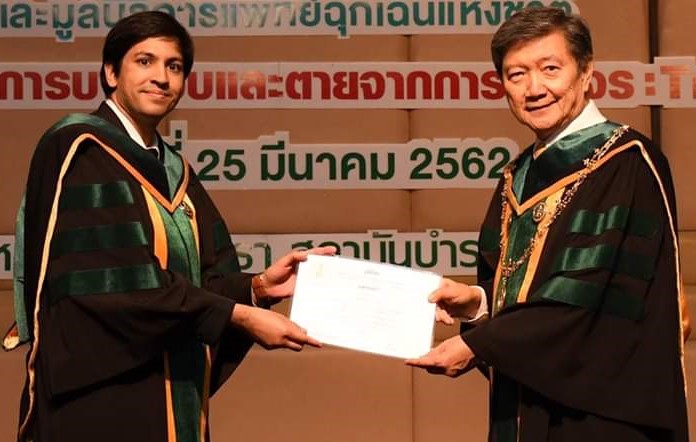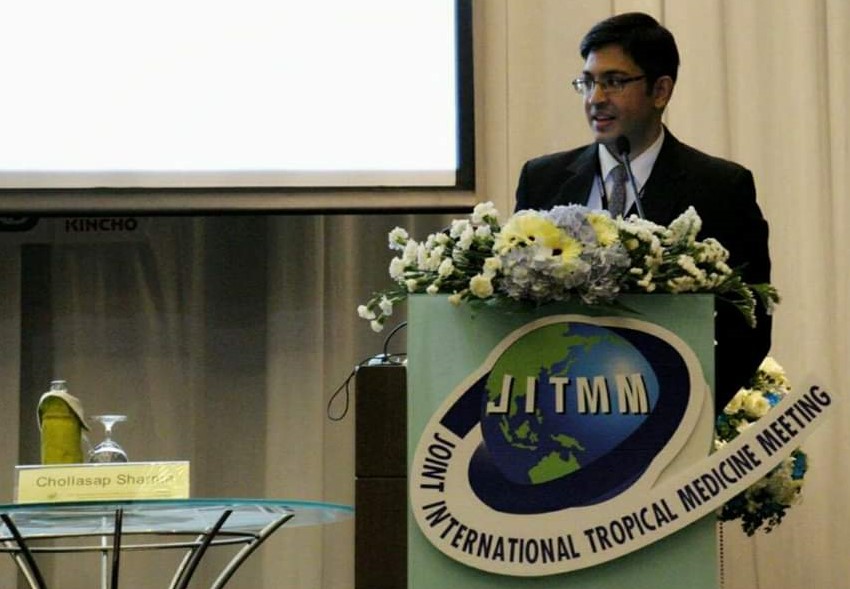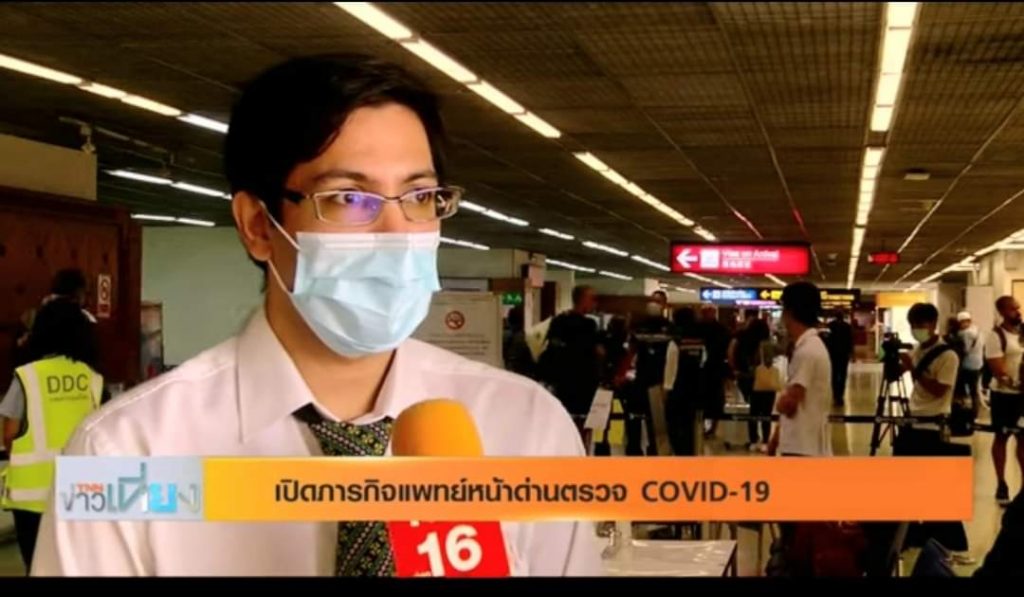A glimpse into how frontline workers have successfully held back the tide.
By Tom McLean
2020 has shown us just how thin the line between regular, day-to-day life and total disaster truly is. While Thailand has fared remarkably well in the face of the COVID-19 pandemic, other countries like India, the U.S., and the U.K. have undergone a tragic public health disaster that continues to claim scores of lives. The danger to the population is very real, and pushing back this tide of catastrophe takes insurmountable efforts.
One of the many brave individuals who are standing in the face of this deluge is Dr. Chollasap Sharma, Head of Communicable Disease Control at Don Mueang International Airport, who, since the start of the year, has had the unenviable responsibility of screening suspected COVID-infected travellers. His upbeat and academically-focused attitude towards his work, however, belies the serious health hazards he regularly comes into contact with.
Passionate about the medical field, Dr. Chollasap credits the scholarship he received to study travel medicine as a major turning point in his life, as well as his discovery of the Hospital for Tropical Diseases in Mahidol University. “It’s actually the first university hospital in the world that started residency training in travel medicine. It appealed to me because I like critical thinking and I love to work with tourists and travellers. I can also speak a few different languages, which helps.”
Born and raised in Thailand, Dr. Chollasap attended a boarding school in Ambala, India, before returning to study medicine at Rangsit University. Following his studies, Dr. Chollasap worked across the country in a multitude of different health clinics, before specialising in travel medicine.
Because of his background, Dr. Chollasap can count a sharply honed ability to diagnose patients with rare and unusual diseases, while differentiating between illnesses with similar symptoms, as chief among his litany of medical skills; a major boon against the COVID-19 pandemic. The influx of the virus was one of the most pivotal points of his vocation so far, pushing him and his colleagues to their limit. “We got a report of an outbreak related to a wet market in China all the way back in December,” he recalls. “We started screening fast and quickly took action to contain the disease. Despite our rapid response, by January, it was declared a public health emergency of international concern.”
Although it’s made his job more perilous than usual, Dr. Chollasap saw the events of the last few months as an unprecedented learning opportunity. “The first three months were very hard,” he says. “There were no fixed procedures for managing cases of the virus, and not many hospitals wanted to accept infected individuals because it might scare away other patients. Sometimes it would take six hours for an ambulance to arrive after making a diagnosis. Often, suspected patients would go out of control because of frustration and fear. We even had a patient who spat at us. Fortunately, things are a lot easier now.”
In a double-edged sword for his career, his actions during this time, when he’s had to juggle vital responsibilities while also managing and safeguarding a team of healthcare professionals, have elevated Dr. Chollasap’s professional standing, but above all else, his commitment to the prevention of loss of life is paramount. When asked about how he’s coped, he credits the relationship he has with his infant son as his rock: “My son and I like to go for lots of runs together. It’s a great way of getting rid of stress and it keeps us healthy too.” He also credits his family, who have been highly supportive.
With very few local transmissions over the past few months, Dr. Chollasap is cautiously optimistic about Thailand’s future, believing that while a second wave is possible, the likelihood of large-scale infections occurring as a result of air travel is minimal. Rather, he thinks that the primary risk comes from groups travelling into the country illegally. Fortunately, such hotspots are now heavily guarded, and he maintains that Thailand’s climate and responsible cultural attitude towards healthcare act as a natural safeguard against viral ‘super spreaders’.
“The universal health coverage here prevents hospital hopping, which is when patients shop between different hospitals when sick. Furthermore, healthcare here is quite affordable if you go to the correctly designated hospital, and that encourages people to see professionals earlier, upon first experiencing symptoms. These and other elements minimise the spread of communicable diseases. Thailand has long since invested in public health and now these decisions are showing good results.” However, he warns people not to become overconfident: “A trustworthy vaccine won’t be ready for at least a year and a half, because there hasn’t been sufficient testing.”
Fundamentally, Dr. Chollasap’s primary concern is preventing people from being injured or dying. To that end, he has recently specialised in occupational medicine and traffic medicine, a preventative medical branch which aims to reduce road traffic deaths and injuries. “It’s a question of finding the cause in order to solve the problem.” His interest in this innovative field is because of the enormous amount of vehicular deaths in Thailand. “Moreover, these fields synergise travel medicine, making them all the more effective. Ultimately, it is of utmost importance that we tackle the issues that harm people the most.”









